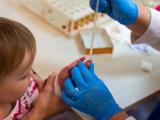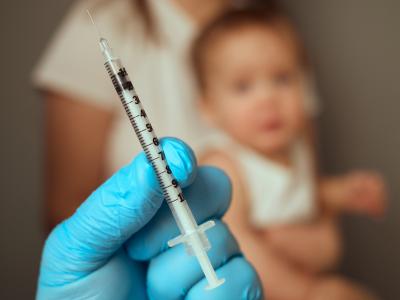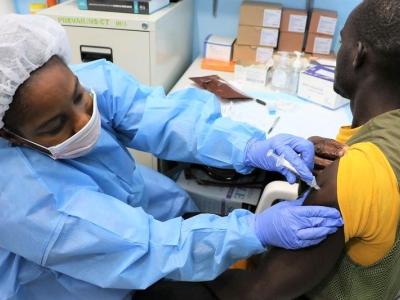Feb 23, 2010
CDC will reduce H1N1 vaccine stockpiles
Over the next 2 months, the Centers for Disease Control and Prevention (CDC) plans to reduce by half the amount of H1N1 vaccine it has pre-positioned in distribution depots around the country managed by McKesson Corp. The CDC has maintained 30 million doses at the sites. The agency said the main strategy will be not replacing 3 million doses that have been recalled, along with 15.3 million doses that are reaching their expiration dates between March and June.
http://www.cdc.gov/h1n1flu/vaccination/reduction_of_inventory_and_allocations.htm
Feb 22 CDC bulletin
Hong Kong probes possible flu-shot reactions
Hong Kong's Centre for Health Protection is studying illnesses in several residents that arose after they received the H1N1 influenza vaccine, the region's government said Tuesday. The cases include a 34-year-old man who experienced double vision, a 28-year-old pregnant woman whose fetus died, and paralysis in a 75-year-old woman and an 80-year-old man. The government was careful to say there are cases of paralysis and stillbirth in the territory every year.
WHO to decide whether to stand down pandemic alert
The pandemic emergency committee of the World Health Organization (WHO) will announce Wednesday whether it plans to step down from its 9-month-old phase 6 pandemic alert. The committee was scheduled to reconsider the pandemic declaration in a confidential teleconference that was to be held today. By WHO protocol, any public announcement will be delayed until director-general Dr. Margaret Chan informs the 193 member states of the decision.
http://newsinfo.inquirer.net/breakingnews/world/view/20100223-254965/WHO-scientists-decide-if-flu-pandemic-has-passed-peak
Feb 23 Agence France-Presse story
Possibility of H1N1 third wave depends on many factors
Scientists on the alert for a possible third wave of H1N1 flu are evaluating the influence of many factors that could affect the virus's resurgence, the Washington Post reported today. They include how much of the populationparticularly schoolchildrenis already immune, whether uninfected people are gathering in close quarters, and how much the virus is affected by winter temperatures and humidity. Even without a third wave, a variant of pandemic H1N1 is likely to circulate for years.
http://www.washingtonpost.com/wp-dyn/content/article/2010/02/22/AR2010022203638.html
Feb 23 Washington Post story
Study: Seasonal vaccines would not have slowed H1N1
A ferret study suggests seasonal flu vaccines would not have contained novel H1N1, which emerged at the end of the 2008-09 flu season, but veterinary vaccines might have limited spread in pigs. A Canadian team administered two 2008-09 seasonal formulas, a veterinary vaccine and a newly developed H1N1 vaccine to ferrets, then infected the animals with a virulent strain of novel H1N1. The swine and H1N1 vaccines were at least partially protective, but the H1N1 would have required a second dose.
http://dx.doi.org/10.1086/651171
Feb 19 Journal of Infectious Diseases abstract


















